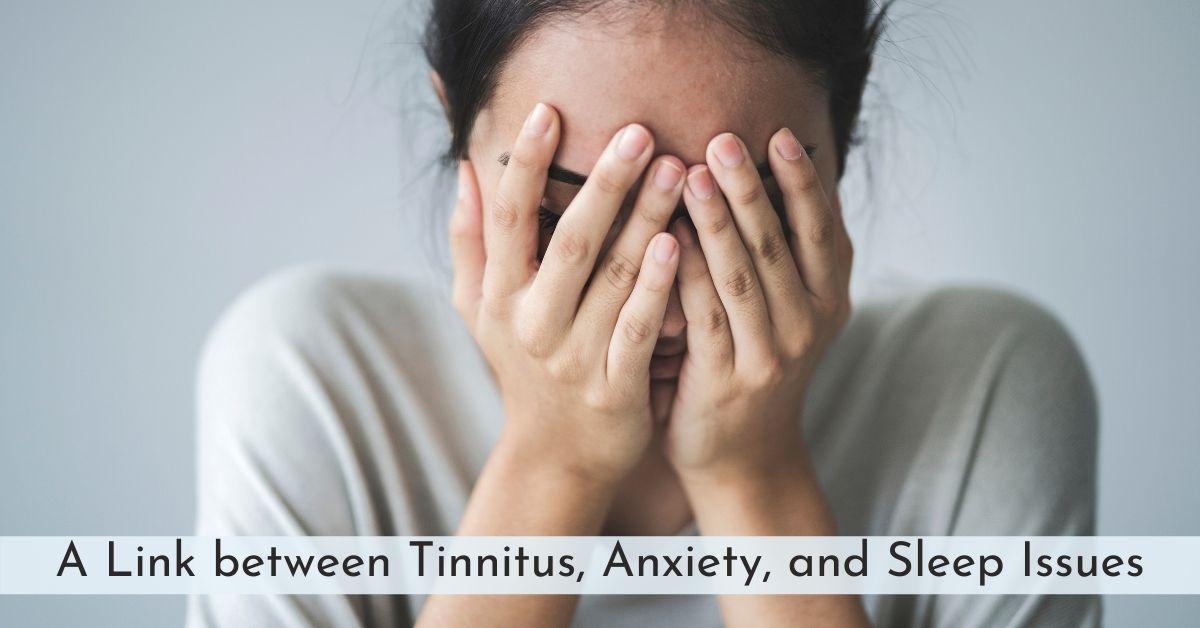Tinnitus is the experience of hearing a buzzing or ringing like noise in one or both ears. The sound has also been described as clicking and humming. Tinnitus is the perception of this noise when no external source is present. This means that only you can hear it even upon being examined by a medical professional. Tinnitus can be mild to profound, significantly impacting daily life by contributing to anxiety and sleep issues.
What Causes Tinnitus?
Tinnitus is often a symptom of an underlying condition that needs to be addressed. Common causes include the following:
- Hearing Loss: impaired hearing is the most common cause of tinnitus. Hearing loss is a prevalent chronic condition that nearly 1 in 5 people are affected by (over 48 million people). It results in a reduced ability to hear and process sound which produces a range of symptoms including tinnitus. Hearing loss can be caused by:
- Existing medical conditions including hypertension, cardiovascular disease, diabetes, strokes etc. increase the risk of developing hearing loss.
- Aging: age related hearing loss, also known as presbycusis, impacts 50% of adults 75 and older. The natural aging process and/or medical conditions that become more common with age contribute to presbycusis.
- Environmental exposure to loud noise: is another common cause of hearing loss, it can also cause short term rather than permanently damaging hearing.
- Exposure to Loud Noise: one time or consistent exposure to loud noise can cause hearing loss and/or temporary effects like tinnitus. Sound is measured in units referred to as decibels (dB) and noise above 85dB is potentially harmful for hearing. People can be easily exposed to this level of noise which is similar to busy city traffic. According to the Hearing Health Foundation:
- 30 million people are exposed to hazardous noise levels in the workplace
- 50% of people, ages 12-35, are exposed to unsafe noise from personal audio devices and entertainment venues
- Earwax Accumulation: buildup of earwax accumulates bacteria in the ears which can lead to ear infections or irritation, producing tinnitus.
Tinnitus can be constantly present which can be distracting, overwhelming, and more concerning; can lead to serious anxiety and sleep issues.
Link Between Tinnitus, Anxiety, and Sleep
Regularly experiencing this phantom like noise can make it increasingly difficult to manage and complete daily tasks with ease. Doing the most basic activities can take more time and cause frustration. Tinnitus can also strain communication by preventing hearing clearly and causing unpleasant noise which is distracting. This presents various challenges for conversations that people are forced to navigate. These realities often contribute to anxiety, impacting sleep and wellbeing.
Difficulty falling and/or staying asleep in addition to receiving high quality sleep are common effects of tinnitus. A 2019 study found that nearly 70% of people with tinnitus experience poor sleep. This can lead to insomnia, a sleep disorder that is associated with tinnitus. Insomnia is one of the most common sleep disorders that makes it difficult to initiate and/or maintain sleep. Lack of sleep has numerous effects including reduced energy, difficulty focusing, fatigue, grogginess, challenges concentrating etc. The best way to alleviate symptoms is to have your hearing assessed and practice tips to effectively manage tinnitus.
Tips to Manage Tinnitus
There are several useful ways to minimize the impact of tinnitus. The first step is to have your hearing tested for any hearing impairment. You can do this easily by scheduling an appointment with a hearing healthcare specialist. Treating hearing loss can drastically alleviate tinnitus and improve hearing capacity. Other helpful ways to manage tinnitus include:
- Alleviate Stress: doing what you can to reduce stress and finding ways to relax can provide relief. A few things you can explore are meditation, yoga, and drawing.
- Use Ambient Noise: using ambient noise can minimize the impact of tinnitus. You can create white noise by playing soft music and using a white noise machine.
- Protect Hearing: reducing your exposure to loud noise and also minimize tinnitus. You can do this by using headphones, earmuffs, earplugs etc.
- More Sleep: tinnitus affects the quality of sleep which then worsens tinnitus. You can break this cycle by creating an environment that helps you sleep well (adjust lights, use essential oils, comfortable bed and pillows etc.).
If you have been troubled by tinnitus symptoms, we’re here to help. Contact us today to learn about how the latest hearing technology can help alleviate tinnitus.

